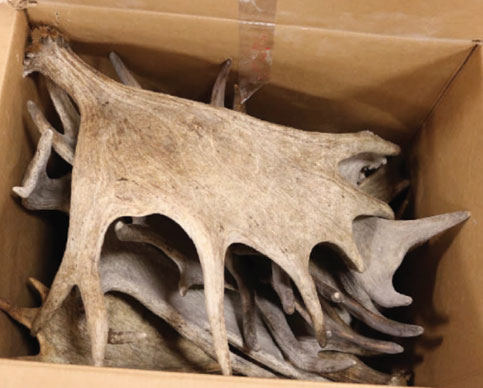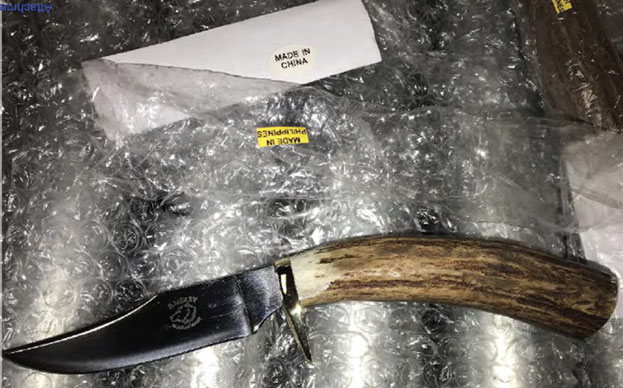March 3, 2025
(Anchorage, AK) – Alaska Attorney General Treg Taylor announced that the Alaska Department of Law’s Consumer Protection Unit obtained a Superior Court order requiring B. Merry Studio, Inc., its owners, and an employee to pay a $250,000 civil penalty for marketing products as made in Alaska, when those products were in fact made in the Philippines.
“Our office is fighting to protect Alaskan artists and businesses, who take the time and pay a premium to make their merchandise here in Alaska. Honest businesses shouldn’t have to compete with companies that manufacture their products cheaply overseas but, nonetheless, market their products as ‘Alaskan’ made,” said Attorney General Taylor. “The Court’s decision protects the integrity of Alaska’s tourism industry. People need to be able to trust that they will get what they pay for when they visit Alaska.”
The defendants employed workers in the Philippines to make knives, figurines, and carvings. The products were shipped to Alaska in a finished or nearly finished state and affixed with foreign country of origin labels, typically “Made in Philippines” stickers. However, the defendants removed the foreign country of origin labels and sold the products as “Alaskan Made” and “Made in Alaska.”
Some of the products, like those in the following images, were made in part from raw materials sourced from Alaska, such as caribou or moose antler, which were shipped to the Philippines for manufacturing.


But other products were made in their entirety from materials that were sourced outside of Alaska. Dymondwood, a wood-resin composite, was purchased from manufacturers in the Lower 48. Similarly, the knife blades were purchased from manufacturers outside of Alaska and shipped to the Philippines for assembly.
The defendants agreed not to contest liability under Alaska’s Unfair and Deceptive Trade Practices Act and elected to proceed to a penalties hearing.
In her order imposing the $250,000 penalty, Superior Court Judge Laura Hartz found that “the problem is that the items weren’t made in Alaska, they were made substantially in the Philippines.” The court concluded that there was “no evidence of good faith, and only evidence of bad faith,” on the part of the Defendants and that “both Alaskans and tourists of the State were harmed by the deceptive way the items were being promoted as made in Alaska.” The Court emphasized that “the State always has a need and an obligation to uphold its consumer protection laws to protect Alaskans. The court finds this need is intensified and made greater when a business holds itself out as selling items made in Alaska that are actually made overseas.”
Attorney General Taylor expressed gratitude to the employees of the U.S. Fish and Wildlife Service, U.S. Customs and Border Protection, and Homeland Security Investigations who assisted in the investigation of this important case.
Defendants in the lawsuit are B. Merry Studio, Inc., its owners Robert Merry, Josephine Merry, Mary Uy, and former owner Mark Uy, and employee Judylyn Uy.
# # #
Department Media Contacts: Communications Director Patty Sullivan at patty.sullivan@alaska.gov or (907) 269-6368. Information Officer Sam Curtis at sam.curtis@alaska.gov or (907) 269-6269.
